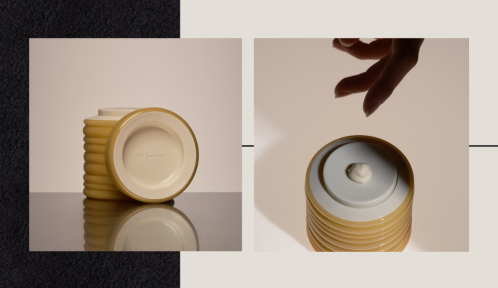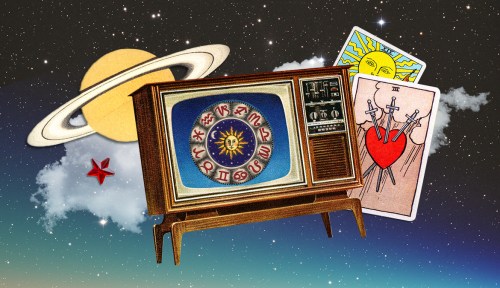It can be pretty shocking to look in the mirror and see that the white of your eye has turned…red. Especially when you can still see fine and are in zero pain.
Experts in This Article
ophthalmologist in Oakland, NJ.
Chances are you have a subconjunctival hemorrhage—or a popped blood vessel in your eye—which sounds a lot freakier than it actually is.
“They’re kind of like a bruise. They look scary, but more often than not, they’re nothing to worry about,” explains Diane Hilal-Campo, MD, an ophthalmologist based in Oakland, New Jersey.
The hemorrhage will also heal on its own, though it won’t happen instantly.
Reassuring as that is, you might be wondering where this thing came from and if you can get rid of it faster. Here, learn what causes a broken blood vessel in your eye and how to treat it.
What causes a popped blood vessel in your eye?
A subconjunctival hemorrhage happens when a tiny blood vessel breaks in your eye’s conjunctiva—the clear surface of your eye. Similar to a bruise on your skin, the broken blood vessel causes blood to leak into the surrounding area. But instead of pooling under your skin, the blood pools between your conjunctiva and your sclera, i.e., the white outer layer of your eyeball, according to the American Academy of Ophthalmology (AAO). This can cause all-over eye redness and even make it appear as though your eye is bleeding.
So what’s making your eye blood vessel pop? “In most cases, subconjunctival hemorrhages will suddenly appear after some kind of straining that causes a blood vessel to break,” says Dr. Hilal-Campo. The straining quickly spikes your blood pressure, putting more pressure on the blood vessels in your eye until one bursts open, she adds.
Some common causes of subconjunctival bleeding include the following, per Dr. Hilal-Campo:
- Coughing
- Heavy sneezing
- Vomiting
- Straining to poop
- Eye injury (like being poked in the eye)
- Rubbing your eyes too hard
While anyone can get a subconjunctival hemorrhage, you’re more likely to be affected if you have diabetes, high blood pressure, or glaucoma, which can make your eye’s blood vessels more susceptible to damage.
Contact lens wearers are also more prone to popped vessels, because lenses can potentially make you more prone to eye injuries in general, per the National Library of Medicine (NLM).
“Popped blood vessels are kind of like a bruise. They look scary, but more often than not, they’re nothing to worry about.”—Diane Hilal-Campo, MD, ophthalmologist
Treatments for broken eye blood vessels
Turns out, there’s no particular treatment to make a popped blood vessel heal (or help it heal faster). Your eye should get better on its own within a few weeks, according to the AAO.
“If you find that your eye feels irritated or scratchy, you can use artificial tears,” says Dr. Hilal-Campo.
If the area around your eye is swollen, like from an injury, ice can help you feel more comfortable, too, per the NLM.
And if you’re wondering whether using eye-whitening drops like Visine will clear up the redness, the answer is no. “They’re formulated to help brighten bloodshot eyes. They cannot clear away the tiny pool of blood caused by a popped blood vessel,” says Dr. Hilal-Campo.
Can you prevent popped blood vessels in your eye?
You can reduce your chances for popping a blood vessel in your eye by managing any risk factors you might have, like underlying illness. Other prevention tips you can try include the following, per the Cleveland Clinic:
- Work with your doctor to make sure underlying conditions like diabetes or high blood pressure are well-controlled
- Keep your contact lenses clean
- Wear protective eyewear for sports, work, or activities that pose a risk for eye injuries
When to see a doctor
Even though a random popped blood vessel is typically not cause for concern, in rare instances, they can be a sign of a bleeding disorder. So it’s not a bad idea to have your optometrist or ophthalmologist give your eyes a check.
“Your doctor can make sure there’s no other bleeding behind your eyes or in your body that would require blood tests to check for other problems,” says Dr. Hilal-Campo.
And definitely go to your doctor if your eye is in pain or the popped blood vessel is causing vision changes.
You should also let your doctor know if you get popped blood vessels in your eyes often, because frequent ones could be a sign that you have an underlying health condition (like diabetes, high blood pressure, or glaucoma) that isn’t being treated, she adds.
FAQ
How long does a popped eye blood vessel take to heal?
Your eye should get back to its usual white color in about one to three weeks. Using artificial tears may help ease any irritation you might have while it’s healing, per Dr. Hilal-Campo.
What should you avoid with a broken blood vessel in your eye?
No need to bust out the safety goggles. Your eye should heal on its own without needing to take any additional precautions. If your eye is irritated, itchy, or burning, though, you may want to refrain from wearing contact lenses (if you do) and wear glasses for a while instead.
Why did I wake up with a broken blood vessel in my eye?
It’s possible you gave your eyes an intense rub while you were snoozing, says Dr. Hilal-Campo. Regularly waking up with a subconjunctival hemorrhage in your eye could also be a sign of a sleep disorder like sleep apnea, because the condition can raise your blood pressure and weaken the blood vessels in your eye. If you suspect this is the case, talking to your doctor about getting a sleep study may be helpful, to get to the root of the issue.
Are there any complications from a popped blood vessel in the eye?
Not usually. Subconjunctival hemorrhages don’t typically affect your vision or harm your eyes. But if your popped blood vessel is due to an injury that also affected other parts of your eyes (like the cornea, which covers your iris and pupil), your vision could be affected. So definitely let your doctor know if you’re having any symptoms that go beyond eye redness, per Dr. Hilal-Campo.
—reviewed by Jennifer Logan, MD, MPH
Sign Up for Our Daily Newsletter
Get all the latest in wellness, trends, food, fitness, beauty, and more delivered right to your inbox.
Got it, you've been added to our email list.











